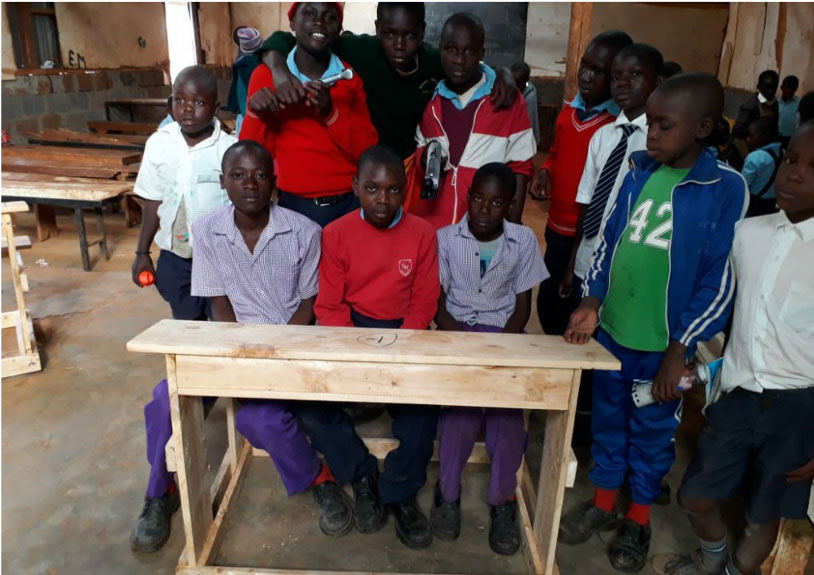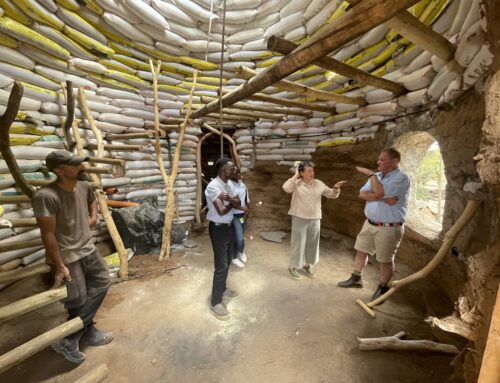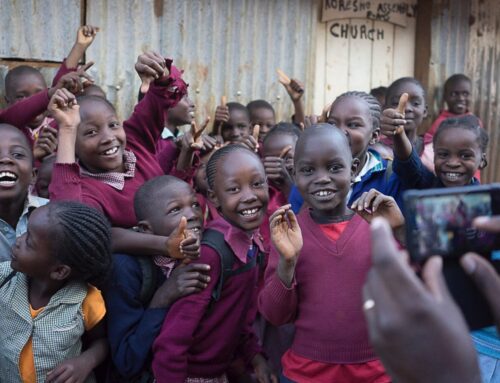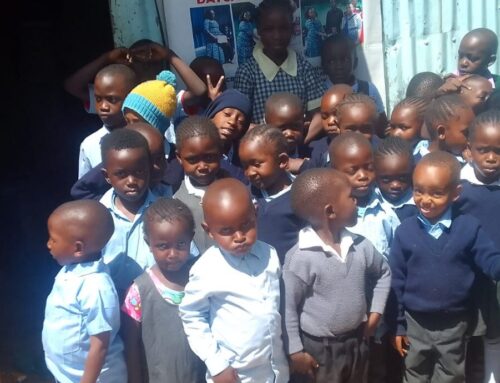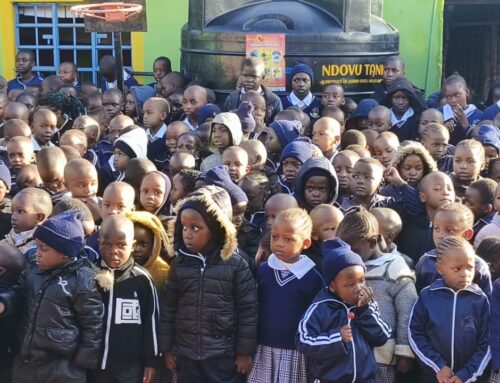The challenge
The idea for the “Makerspace Woodwork” was born in July 2018, where many principals complained about broken or missing school desks. Talking to the headmasters, it became evident that it made little sense to “supply” schools with school desks. These last about three years and need to be replaced. Consequently, this is a need that can be planned for in advance.
In addition, manufacturing the school desks from scratch could, on the one hand, save money and, on the other hand, even create a source of income for the schools in the long term. Thus, it was clear to us that two conditions must be created so that help for self-help takes effect: In the long term, each school should be enabled to build and repair its own school desks, and with the skills learned, entrepreneurial action should be encouraged.
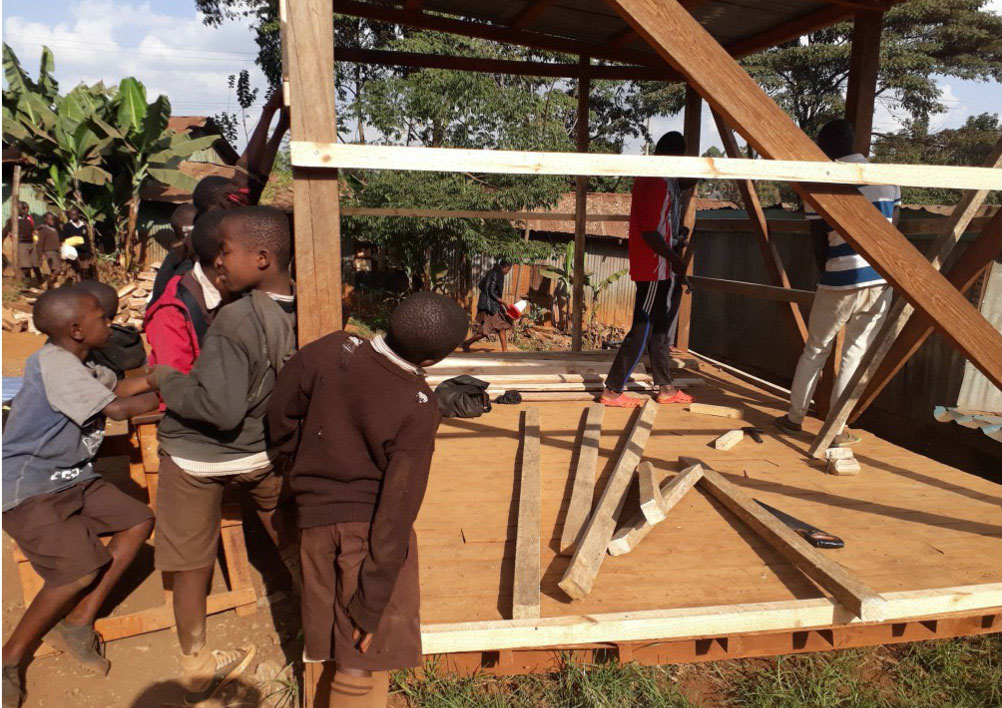
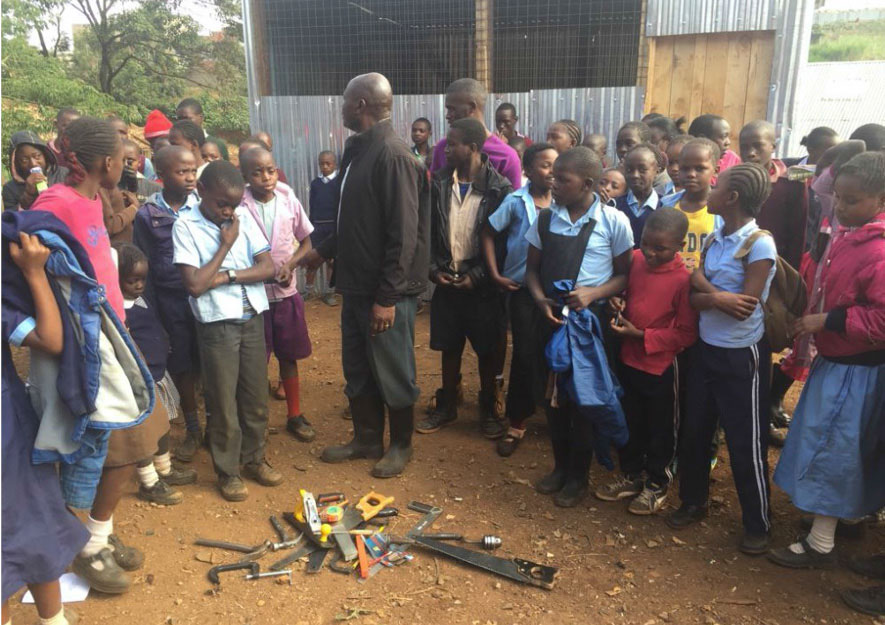
Creating the Makerspace
The idea of the Makerspace provides the ground for this. The Makerspace shed in Kangemi will be built on the premises of the Kangemi Youth School, as this school owns its own school property and thus the whereabouts of the shed and its materials are secured. However, all CIFEFA schools have the opportunity to opportunity to provide carpenter on site. A trainee carpenter can be introduced to and trained in the proper use of tools and materials (wood) in a one-week training. For the time being, the Skylife Centre and the Kangemi Youth School participated in this training with selected students and teachers.
Prospect
In the future, the two principals promised me, the subject of handicrafts will be introduced into the curriculum, even though it is not relevant for examinations in Kenya. However, they also recognize the need to equip students with skills that prepare them for a practical life in the trades, since only a small part of the students continues to study. Rather, they say, it is also important to develop entrepreneurial skills.
The wood was donated from the Louise-Rothschild School in Frankfurt am Main. Eddy Bart, an American with extensive experience in setting up makerspaces and running them as businesses, will come here in April. He will pick up the seed that has been planted and give insights on how the “carpenter’s workshop”, which has so far only built school desks, can become a company.
